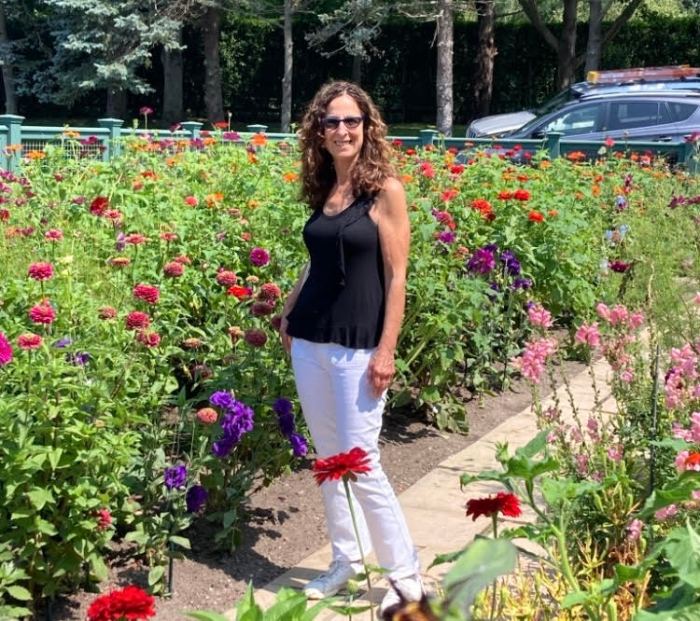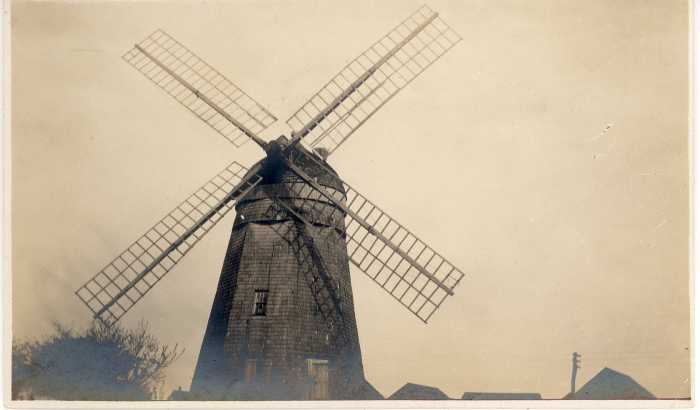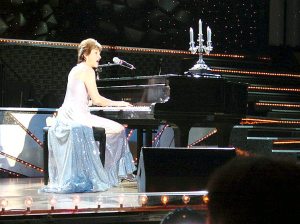
If you asked me what I know about El Dorado, I’d have to say it was the name of an old John Wayne movie. It actually was an old Kansas frontier town, the shooting ground for the likes of Wyatt Earp, Doc Halliday, Bat Masterson and their ilk. They must have run out of bullets because today El Dorado is a thriving, progressive and economically diverse city of 13,000. Forget the gunfights. In this day and age, it’s an oil town with a huge refinery and Boeing (aircraft) close by.
The city has many things to be proud of. And one of them is that the very talented and resourceful Judy Feuss was born and grew up there. (Yes, she does remember what an outhouse is.) Fortunately for us, vivacious Judy gathered her talent, her ingratiating personality and her can-do attitude, stuffed them in her mental traveling bag and went in search of a career. Eventually, she settled in Port Washington. But oh, the time in between…
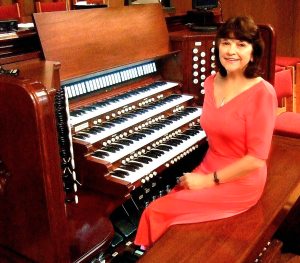
First, about El Dorado, Judy set me straight. Everyone pronounces it El Dorahdo, but the locals pronounce it El Doraydo. She doesn’t know why but they do. Judy’s grandmother lived on a farm and had two sets of twins—all girls. One was Judy’s mother, whose name was Velma; her twin’s name was Thelma. And the names of the other twins? You’ll never guess: Leta Claudine and Cleta Audine. “My grandfather was distraught,” Judy said, “because farmers want big strapping sons. He used to say, ‘I was hopin’ for a son, and I didn’t get one daughter, I get two at a time.’” Judy’s mother taught elementary school in a one-room schoolhouse. Judy didn’t grow up on a farm and she didn’t start school in one-room schoolhouse, but she did have to walk more than a mile down the highway to go to school.
At age 9, Judy saw a shiny silver flute and decided she wanted to play in the fourth grade band. So, she hounded her mother to buy one for her. “Mother couldn’t afford it so she looked for a second-hand instrument in the El Dorado Times. I came home from school one day and she said, ‘I have good news and bad news. I found an instrument for you but it isn’t a flute.’” It was a clarinet, a metal clarinet. “I burst out crying and said ‘now all the rich girls are going to make fun of me.’” To which her mother said, “Well, I can’t get my money back, so you might as well take it.” Ah, but when she learned to play Mary Had A Little Lamb, Judy changed her tune. “Oh, I just loved it,” exclaimed she! (It was to come in handy later.)
She made the band all right. In fact, during her sophomore, junior and senior years, Judy was the drum major. “When I was in ninth grade,” Judy said, “I was the twirler.” How did she learn to be a twirler? “I really don’t know,” she confessed. “I think I just picked it up. I don’t do twirling anymore.”
When Judy was in high school, a woman no one seemed to know gave a pile of money to the First Baptist Church with the caveat that the money be used to buy the best organ they could find. (Previously, a grand piano was used for music.) Every day after school, Judy would run to the church and watch them build the organ. “I’ve got to play that organ,” she told herself. But she was prevented from playing it because, it was said, she was too young. “I let them know how old Johan Sebastian Bach was,” Judy said. “He was younger than I.” Her next hurdle was a proviso that she take lessons before she’d be allowed to play the organ. Her mother promptly talked the professor who taught organ at Wichita State University into teaching Judy.
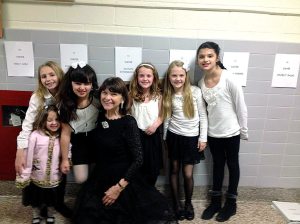
As an organist, she was a natural. At 15, a senior in high school, Judy became a full-time organist at First Christian Church in El Dorado and was paid the handsome sum of $20 for every service she played. Encouraged, she enrolled at Wichita State University, majoring in organ. Pretty young woman that she was, the inevitable is not surprising—especially when away from home in college. A fellow by the name of Vernon latched on to Judy. He was a good student, president of the student council and on the debating team. Aided by propinquity, Vernon proposed. Judy declined. Why? “I was smitten with someone else,” she said. “You know how it is when you are young. You look at how somebody dances, writes you poetry and sends flowers.” That poetry was pretty powerful. By the time Judy graduated, she and the poet were married and were the parents of two daughters.
College over, it was time to move on. Judy heard about a job as the organist at the Presbyterian Church in Oyster Bay. She wasted no time applying for the job. Her letter must’ve been dynamite because the chairman of the church’s music committee flew to Kansas City to interview Judy for the job. Judy had driven to Kansas City beforehand and made arrangements with a church to use its organ for the audition. She got the job and her husband was hired as band director at Locust Valley Middle School. Thank you, bluebird of happiness.
In 1968, Judy became the organist at the Manhasset Congregational Church. After 11 years, she decided to try her wings at something else and went on a quest to become a buyer for women’s clothes. That took her to a job at the glamorous Martha’s at 58th and Park Avenue (long since gone). Judy’s title was assistant buyer, but in reality, she worked at the office reporting to Martha herself. “She would call every day,” Judy said, “and I would tell her, ‘Miss Martha, Gloria Vanderbilt was in today. She is concerned about the wrinkles on her neck. She wants you to get something in the store to cover it, but she won’t wear a turtleneck. Jackie Kennedy was in today and she’s getting ready to go on a long trip and she needs A, B, C, D.’ I was really her eyes and ears.”
Judy enjoyed a successful and varied career in the garment district for 17 years. But when the business started to go offshore, Judy was happy to be offered her old job back at Congregational Church of Manhasset. Then she went back to college and got her teaching certificate, which made it possible for her to land a full-time job teaching elementary general music and chorus at Northside Elementary School in Farmingdale.
After a busy and sometimes hectic life, does Judy contemplate retirement? “I haven’t even thought about that,” said Judy, shaking her head. “I love doing what I’m doing and I wouldn’t do anything else.” In Edna Ferber’s novel, Saratoga Trunk, the heroine says, “Life is a thing you must take by the tail or it runs away from you.” Well, my friends, it’s clear that Judy Feuss has done exactly that, with gusto!






